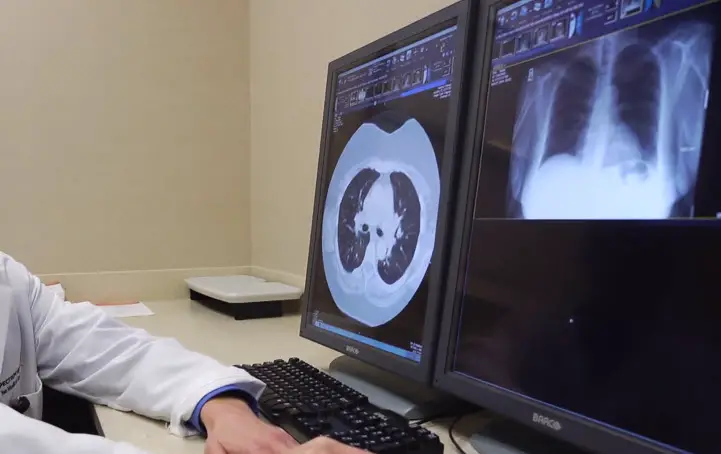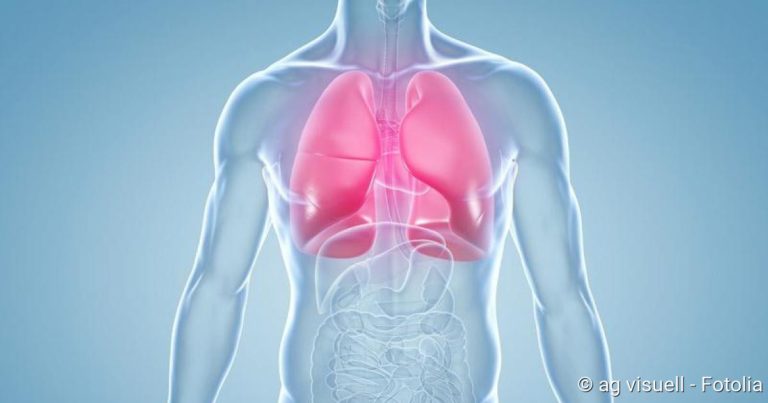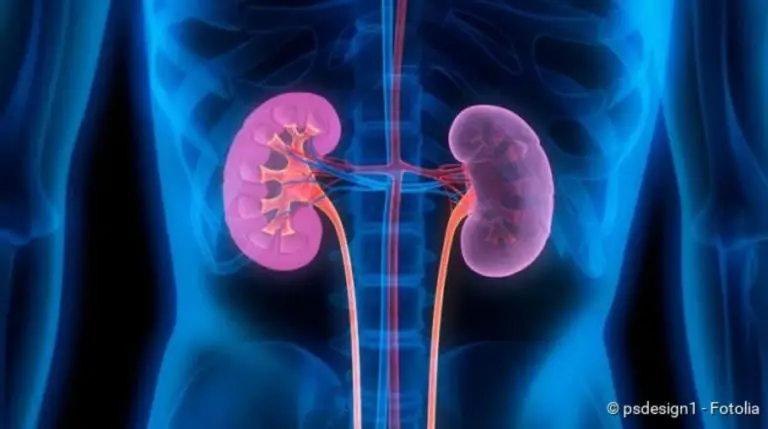Mesothelioma Symptoms
Mesothelioma Symptoms
Considering that mesothelioma is a rare type of cancer, the physician would rarely think about it in the first place (Source) when the patient informs him of the symptoms (Source), that are not necessarily mesothelioma symptoms (Source). This happens in many countries (Source). Thus, initially, the doctor would look for more common diseases, the physician would give treatment for common respiratory conditions or common abdominal disorders (Source).
However, in the case of mesothelioma, the patient would not benefit from such treatment. Mesothelioma is often discovered accidentally when a doctor orders blood tests and x-ray (or ultrasound) to find the causes of lung or abdomen related symptoms.
Mesothelioma is the cancer of the lining of internal organs. Serous tissue or lining that covers lungs, hearts, and organs of the abdominal cavity like stomach, intestines, bladder, and so on. Since mesothelioma occurs due to inhalation of asbestos (generally occurring decades after the primary exposure), mesothelioma of pleura (outer lining of lungs) is the most common. 75% of cases of mesothelioma would be of pleura, meaning that respiratory symptoms are most common in mesothelioma. Nonetheless, in 20-25% of cases, mesothelioma may occur in the peritoneum (abdomen). In about 1% of cases, it may even happen in the protective lining of the heart (pericardium).

Symptoms of mesothelioma like any other cancer would depend on the location and stage of the disease. Mesothelioma starts with small nodule or tumor, slowly this tumor increases in size and starts approaching adjacent organs and systems. With time, some of the cancer cells would break away from the primary site and spread to other parts of the body through the lymphatic system. In terminal stages, cancer may be found in faraway organs.
When mesothelioma is small, and the tumor has not spread, there may be no symptoms at all. Or there may be vague symptoms like the feeling of weakness, unexplained weight loss. Symptoms would generally occur in the 3rd or 4th stage of cancer when it has started spreading to the neighboring organs when the disease has begun putting pressure on the nearby structures. At that time more specific symptoms may occur like deposition of fluid in the pleural or abdominal cavity, pain, difficulty in breathing, a cough that would not go, and so on.
So if the mesothelioma is in the lungs (70-80% cases), the most commonly associated symptoms would be:
- A cough or wheezing that would not get better with time or usual treatment for respiratory conditions
- Difficulty in breathing as cancer starts to occupy more and more space in the lung cavity
- Respiratory complications
- Pain in the chest or the abdomen due to pressure caused by the growing tumor
- Weakness along with low fever and night sweats
- Severe fatigue and muscular weakness (as cancer affects appetite and also starts to absorb vital nutrients meant for other body functions)
Against the expectation, x-ray or ultrasound would show the built-up of a lump or tumor in either lung cavity or abdominal cavity. At that time, the physician would start thinking about cancer and would order more specific tests.
Pleural Mesothelioma Symptoms
Inhalation of microparticles of asbestos is the most common reason for mesothelioma, therefore no surprise that pleural mesothelioma has the highest prevalence. Even the tiny amount of inhaled asbestos is enough to cause mesothelioma, as small particles of asbestos remain in the lungs or other parts of the body for lifelong. These tiny particles keep on causing small level local cellular damage, inflammation, and mutations.
If a person develops mesothelioma than he or she may develop a cough that would not react to any of the commonly used treatment, and it would keep on getting worse due to the progression of mesothelioma. Soon a person may develop shortness of breath, pain in the chest. As cancer progresses, it disturbs the lymphatic flow and thus causes fluid accumulation in the pleural cavity (pleural effusion). In many cases, the pain would continue to increase with the progression of cancer.
Apart from the specific respiratory symptoms a person may develop other non-specific cancer-related symptoms. Some of those living with mesothelioma may develop anemia, progressive weight loss, loss of appetite is often severe. As the tumor grows, it may put pressure on the surrounding areas and thus make the functioning of lungs difficult. A person may even develop difficulties in swallowing.
Though coughing of blood in mesothelioma is less frequent in comparison to lung cancer, still in advanced stages, it may occur. The progress of cancer may lead to blood clotting defects and chest pain too. Regretfully, most people are diagnosed in the 3rd and 4th stages of mesothelioma when the prognosis is worst; the reason is that in early stages very few develop any kind of symptoms that may point towards cancer.
Red flags in mesothelioma: the following symptoms are most commonly associated with mesothelioma (according to one of the epidemiological studies):
- Pleural effusion (accumulation of fluid in the pleural cavity) – 90% of cases
- Shortness of breath- 79% of cases
- Chest pain – 64% of cases
- A chronic cough that would not go with usual treatment and keep on getting worse- 36% of cases
- Weight loss and general malaise – 30% of cases
Common symptoms of pleural mesothelioma are:
- A cough
- Accumulation of fluid in the lung cavity
- Chest pain
- Shortness in breath
- Weight loss
Symptoms In Peritoneal Mesothelioma
Second most common location of mesothelioma is an abdominal cavity, that is peritoneal mesothelioma. The peritoneum is the thin serous membrane that covers most of the organs in the abdomen and helps to keep them in place. Peritoneal mesothelioma can occur at any location in the abdomen, causing abdominal distention, fluid retention in the abdominal cavity, loss of appetite, pain in the gut, in more severe cases when the tumor is large it may lead to intestinal obstruction. A person with peritoneal tumor would feel full quickly. Weight loss is among the common symptoms of peritoneal mesothelioma.
Tumor of abdominal cavity not only have different symptoms from pleural mesothelioma; its treatment also differs. Removal of tumor in the abdominal cavity is often considered to be easier. Thus doctors would usually recommend surgical removal of the visible part of the mesothelioma. Further, in the abdominal cavity, they can use a special procedure called HIPEC, which involves giving the anti-cancer drugs at a higher temperature to improve their effectiveness.
Abdominal mesothelioma has a better prognosis in comparison to pleural mesothelioma. Half of the patients that received HIPEC continue to live for more than five years.
Common symptoms of peritoneal mesothelioma are:
- The buildup of fluid in the abdominal cavity (called ascites)
- Abdominal pain
- The loss in appetite or even intestinal obstruction
- Weight loss
Pericardial Mesothelioma Symptoms
It is cancer or mesothelioma of the outer layer of the heart. It is a rare form of mesothelioma, but due to the small size of the heart cavity condition of the patient with this type of mesothelioma may worsen quickly. Due to the pressure of the tumor on the heart a person may feel heaviness and pain in the chest, may develop heart murmurs, have difficulty in breathing due to changes in blood flow. Other non-specific symptoms like weight loss, nighttime sweating, low-grade fever in the evening are also common.
Common symptoms of pericardial mesothelioma are:
- Heaviness in chest or pain in the chest
- Difficulty in breathing
- Heart palpitations
- The buildup of fluid in the cavity around the heart (and thus severe pain in the region along with difficulty in breathing and cough)
Other rare types of mesothelioma
Testicular mesothelioma is among the rarest form of mesothelioma. It may lead to swollen testicles, to lump in the scrotum, testicular pain, swollen testicles.
When Can One Expect The Symptoms Of Mesothelioma
One of the problems with most cancer types is that they remain symptomless in the early stages of the disease, and mesothelioma is no exception. Usually one would expect the symptoms only in the 3rd or 4th stage of the disease and by that time cancer has spread to other surrounding or even far away parts of the body.
Regular screening of the mesothelioma is also not practicable as it is among the rare forms of cancers. Moreover, it has an incredibly extended latency period after the primary exposure to asbestos. Thus a person exposed to asbestos may develop mesothelioma after 20 to 50 years.
Such an extended latency period means that many of those exposed to asbestos may have even forgotten about it. Thus even when the symptoms appear, people tend to think about other health disorders rather than mesothelioma.
Research has shown that women have better survival rate in comparison to men with mesothelioma. Though mesothelioma is very aggressive kind of cancer and majority of those diagnosed do not live more than one year, but this does not mean that there are no long-term survivors. In fact, there are many reported cases when people have survived for even more than ten years after the diagnose. It means that once diagnosed; one should not give hope and instead focus on the treatment and try to maintain optimism.
People exposed to asbestos should pay specific attention to the respiratory health and symptoms. They should always report the treating physician about the asbestos exposure, whenever they develop COPD like symptoms.
Although mesothelioma is of three types, that is epithelioid, sarcomatoid, and biphasic symptoms would be dependent more on the location of the mesothelioma and how aggressively the tumor is growing. The epithelioid form is less aggressive and has a better prognosis, though a diagnosis of the type of mesothelioma is not possible without biopsy, nonetheless, in epithelioid form one may expect milder symptoms and slower progress.
What Are the more severe symptoms?
Many of the symptoms of mesothelioma develop due to the growth of the tumor and pressure caused in the adjacent organs and nerves.
Since in the early stages the tumor is small, so is the pressure on the nerves and thus symptoms are mild. However, in 3rd or 4th stages tumor is quite large and person may develop more severe symptoms like dysphagia or difficulty in swallowing, blood in cough, hoarseness in the voice, damage of facial nerves, various nerve pains, low blood sugar, superior vena cava syndrome (that is the obstruction in the path of blood that is returning from the upper part of the body).
Coping With Mesothelioma Symptoms
Whatever be the stage of the disease, doctors can always help deal with the mesothelioma. Initially, doctors would try to prolong life through surgery, radiotherapy, and chemotherapy. Although mesothelioma cannot be cured, but if diagnosed early, doctors can try to cure it or at least prolong life for several years.
Malignancies are always challenging to recognize as there are no symptoms in the initial stages, and even if symptoms are there, they are too vague to conclude anything. Many of the traditional diagnostic methods cannot detect cancer in its early stages. More specific signs of tumors only arise in the later stages. Moreover, symptoms can be highly varied considering that cancer like mesothelioma may occur in various parts of the body. Hence symptoms of pleural mesothelioma would differ from that of abdominal mesothelioma significantly.
In some cases, mesothelioma may be diagnosed quite late, and doctors may find that there is little they can do to prolong the life, in such case they would help to treat the symptoms of the disease so that to make the life of the patient easier. Nowadays many centers specialize in the so-called palliative care or end of life care.
Finally, it is worth remembering that medicine is never standing in one place and hope is always there. There is still a number of clinical trials with new drugs (to treat mesothelioma) going on. Thus one can participate in the clinical trial irrespective of the cancer stage.





